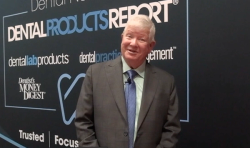- About Us
- Advertise
- Editorial
- Contact Us
- Terms and Conditions
- Privacy Policy
- Do Not Sell My Personal Information
© 2025 MJH Life Sciences™ and Dental Products Report. All rights reserved.
The Benchmark: Self-adhesive resins
G-Cem Clearfil SA RelyX Unicem REALITY’s Top Choices
G-Cem
Clearfil SA
RelyX Unicem
REALITY’s Top Choices
THE SET-UP
All tests performed in the Reality Research Lab are performed by dentists-not students or researchers-in a way that stimulates actual clinical procedures as closely as possible.
THE RESULTS
Embrace WetBond, Pulpdent Corp.
pulpdent.com
Innovative chemistry allowing it to bond to wet tooth structure could lead to more durable adhesion, but its rather low self-cured bond strength is still a concern.
G-Cem, GC America Inc.
gcamerica.com
Choice of automix syringes or capsules makes it as convenient to use as any product in this category and clinical results using capsules are impressive, but syringe material longevity still needs to be proven.
RelyX Unicem, 3M ESPE
3MESPE.com
Longevity as the first self-adhesive resin cement gives it extra credibility and the clicker dispensing makes it available to all those without a triturator, but the lack of automixing is a definite drawback.
Close runners-up include:
BisCem, Bisco Inc.
SmartCem2, DENTSPLY Caulk
Maxcem Elite, Kerr Corp.
The DENTAL ADVISOR’s Top Choices
THE SET-UP
Self-adhesive resin cements eliminate the need for separate etchants and primers for bonding ceramic and metal restorations to tooth structure. These cements are available in tooth-colored, translucent and opaque shades and are dual-cured.
THE CRITERIA
Ideal characteristics:
- Adequate working time and fast setting time
- Excess cement is easy to clean up
- Good bond strength to tooth structure, ceramics and metal
- Good flexural strength and modulus when light-cured, dual-cured or self-cured
- Resistant to marginal discoloration
- Color stable
THE RESULTS
Selected comments from our consultants…
Clearfil SA Cement, Kuraray America
kuraraydental.com
“One of the easiest resin cements ever.”
“Endo tip is great-easiest post cementation clean-up I’ve ever had.”
RelyX Unicem, 3M ESPE
3MESPE.com
“We use RelyX Unicem more often than any other cement in the clinic.”
G-Cem Automix, GC America Inc.
gcamerica.com
“Easy to mix, dispense and clean up after setting.”
“No sensitivity occurred during seating of
restorations.”
THE DENTAL ADVISOR Clinical Tip
Self-adhesive resin cements have a lower incidence of sensitivity than adhesive or traditional crown and bridge cements. Marginal staining of self-adhesive resin cements has been reported to be lower than that of traditional cements. Self-adhesive resin cements bond to tooth structure and other materials with low (5-8 MPa) to medium (8-15 MPa) bond strengths. The separate use of a bonding agent is not recommended. Although bonding agents may be compatible with self-adhesive resin cements, their use makes the manipulation more complicated and may not dramatically improve bond strength to tooth structure. Flexural strength and modulus measured when these cements are light-activated are generally higher than when they are self-cured. When needed, higher bond strengths can be obtained with esthetic and adhesive resin cements that are bonded with separate bonding agents and primers.



